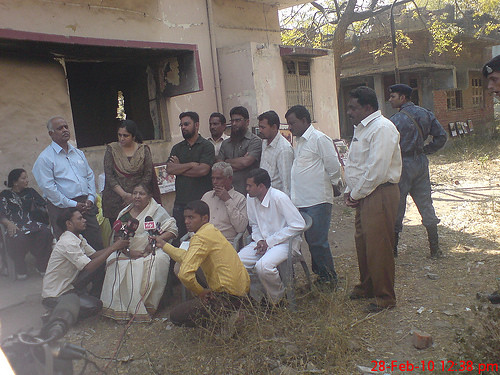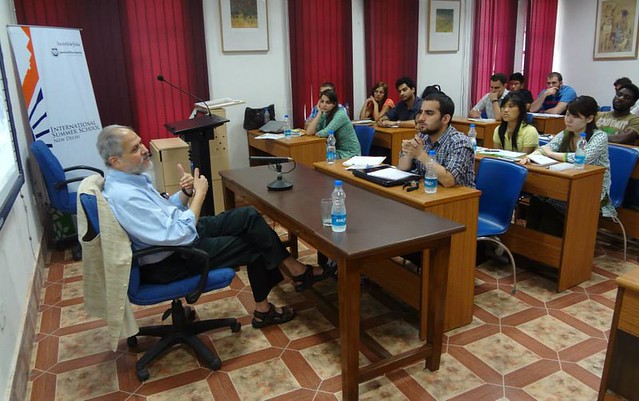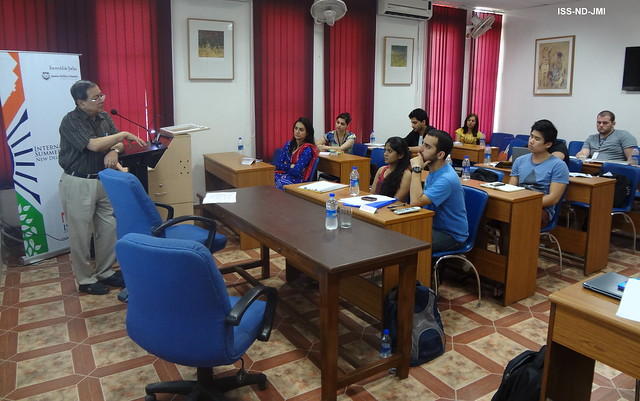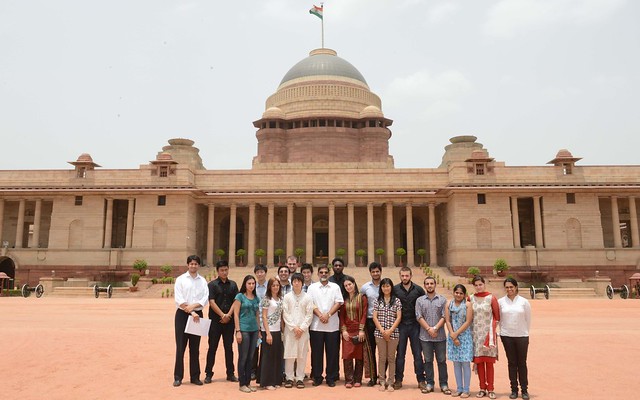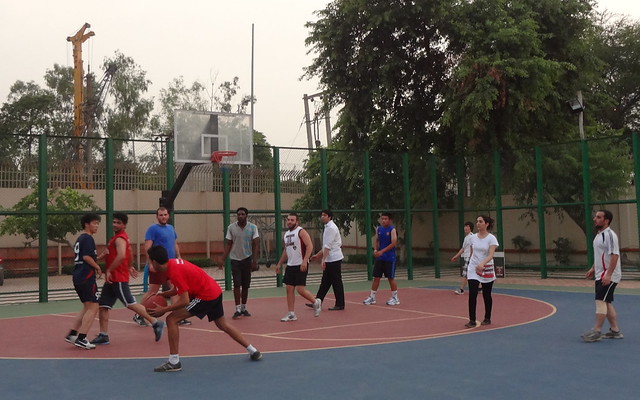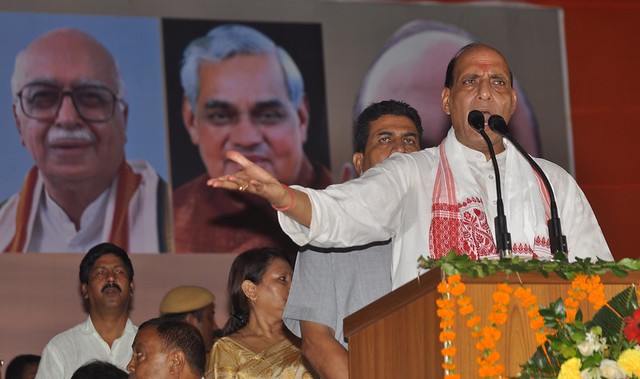By TCN News,
New Delhi: Following is the text of a letter that was initially written by some of us and subsequently endorsed by the undersigned. This letter is a rejoinder to the article written by Chetan Bhagat titled , ‘Letter from an Indian Muslim Youth’ published in The Times of India on 30th of June 13.
The letter was sent to The Times of India for publication with 166 signatures yesterday afternoon but we are yet to receive any response, or even an acknowledgment. Hence, we are left with no option but to make it public with additional signatures which we have received in the course of time.
In the letter sent to The Times of India, we included only ‘Muslim names’ since Mr. Bhagat, in his letter pretended to be an Indian Muslim Youth. However, here we are including all the endorsements we received (at activist.journalist@gmail.com ) because a large number of the emails read, ‘I am not a Muslim but I am equally disgusted by Chetan Bhagat’s letter’.
Given below is the text of letter followed by more than 200 signatures:
TEXT: A Letter to Mr. Chetan Bhagat from Indian Muslim Youth3rd JULY 2013
Dear Mr. Bhagat,
At the very outset, let us make it clear that we are not fans of your regressive fiction. Therefore, we write to you not as crazy fans but as Indian Muslim youth, who felt utterly patronized, insulted and hurt after reading your article, ‘Letter from an Indian Muslim Youth’
. You might have not realized this, but in pretending to render “a strong modern Indian Muslim voice’’ to the youth and the Muslim community at large, you have ripped them of their agency. You have reaffirmed stereotypes that many in the community have been fighting against. Heard of the Muslim god and his flock?
Sir, one does not need a name like Ahmed or Saeed or Mirza, or even be a Muslim to show one’s genuine concern for the community. One just needs to see beyond one’s own prejudice and biases. Believe us, this disgusting piece of your writing made us more nauseous than any of your (or Madhu Kishwar’s) love-verses to Modi. Your article is nothing but an extension of the thought process that anything Muslim is backward and regressive. Since you have assigned to yourself the task of bearing the moral burden of the community, would you care to explain what a ‘Muslim cap’ is?
We agree with you when you say political leaders make promises that go empty post elections. And that there are Muslims who have achieved much without any ‘’cap-wearing politician’’ helping them. But who is this leader that you are suggesting; one who would understand ‘’the desire’’ of the Muslim youth ‘’to come up in life’’ and ‘’inspire us to do better’’? Is it by any chance the mass murderer, Narendra Modi?
You know what hurts? That people pretend to care for you when they don’t. When in fact they use you to grind their own axe. How cleverly you turn everything that the Muslim youth face today – “being frisked with greater attentiveness, denied renting an apartment” – into a product of the community’s inherent backwardness, as if it bears no relation to the increasing communalization of our polity and society.
What makes you think that the ‘cap’ wallahs exercise a great deal of influence within the community? Interestingly, one particular party has been lately seeking a lot of photo-ops with precisely these kinds of community leaders. Make no mistake Mr. Writer. They don’t.
“Because of you”, you write castigating an imagined Muslim leadership, “people feel we vote in a herd.” Now, isn't that really clever, Mr. Bhagat. People feel we vote in a herd because certain parties never tire of screaming hoarse about ‘minority appeasement’ and ‘vote banks’, even though, any psephologist or political scientist, or even an ordinary Muslim youth at Chai dukaan will tell you that Muslims vote just like any other community does: according to a mix of factors: local, national but above all, keeping in mind who will preserve their interests best. And their interests do tend to include the safety of life and livelihood.
We are sorry, Mr. Bhagat, but the ‘’democratic republic’’ you talk of is not so democratic. If it were so, Afzal Guru wouldn’t have been executed to ‘’satisfy the collective conscience of the nation’’. Muslim youth would not have fallen prey to minority witch-hunting, and their killers not decorated with gallantry awards. Adivasis in Chhattisgarh, Jharkhand and Orissa would not have been ripped of their fundamental rights to live with dignity. Dalit poets would not have been falsely charged under sedition laws.
Loving one’s nation is well and good, but being blinded by patriotism is not. Why do Indian Muslims always have to prove their allegiance to India? Why can’t they also be critical of their country?
The party whose path you are treading has had Indian Muslims pass through too many Sita-like ordeals of fire, Agni Pariksha. You may have the privilege to turn a blind eye to the post-Babri Masjid Demolition violence, the Gujarat pogrom, but many others don’t. How then do you think a leader who doesn’t even have the integrity to apologize for his complicity in the Gujarat pogrom represent Muslim youth’s aspirations for ‘’scientific way of thinking, entrepreneurship, empowerment, progress’’ and above all, ‘’personal freedoms’’? And just by the way, have you heard of the word, ‘Justice’?
Sd/-
Name----- Profession---- City (State)
Rafiul Alom Rahman, Student, Delhi University, Delhi
Mahtab Alam, Civil Rights Activist and Journalist, Delhi
Javid Parsa, Student, Maulana Azad National Urdu University, Hyderabad
Zulaikha Jabeen, Researcher and Activist, Raipur, Chhattisgarh
Shahnawaz Malik, Journalist, Delhi
Abdullah A Rahman, Student, TISS Tuljapur
Abu Zafar, Journalist, Delhi
Sadika Saiyed, Law Student, Surat
Omar Rashid, Journalist, Allahabad
Imran Ali, Filmmaker, Delhi
Rashid Hussain, Software Engineer, Jaipur
Mahtab Azad, Development Consultant, Araria (Bihar)
Ali Amir, Student, TISS Mumbai
Gauhar Iqbal, Entrepreneur, Delhi
Bilal Kagzi, Advocate, Surat
Imran Khan, Journalist, Bangalore
Nesar Ahmad, Researcher, Jaipur
Aasiya Aslam, Architect, Chennai
Saif Khan, Student, IIT Kharagpur
Ejaz Ahmad, Student IIT Delhi
Mohd Tanveer Iqbal, Civil Rights Activist, Chennai
Mohammad Noor Alam, Medical Student, Bagalkot
Khan Rashid Ayyub, Legal Translator, Azamgarh
Tariq Shabibi, Software Engineer, Hyderabad
Naim Siddiqui, Marketing Professional, Gurgaon
Shahid Parwez Saiyyad, Entrepreneur, Mumbai
Yuman Hussain, Social Activist, Kishanganj (Bihar)
Mansoor Ali, Network Administrator, Vellor, Tamilnadu
Mohammad Altamash, Operation Manager, Gurgaon
Naveed Hasan, Software Engineer, Bangalore
Syed Hassan Kazim, Journalist, New Delhi
Shehla Rashid, Policy Analyst, J & K
Abul Kalam Azad, Student, TISS Guwahati
Tasneem Khan, Assistant Professor, Galgotias University, Noida
Najmul Huda, Research Scholar, Jamia Millia Islamia, New Delhi
Dayam Anwar, Accountant, New Delhi
Shahrukh Hameed, Asst Bank Manager, Lucknow
Mohammad Rafiq Mulla, Web Developer, New Delhi
Ershad Ahmad, Development Consultant, New Delhi
Shoaib Mohammad, Student, Bangalore University
Faraz Ahmad, Business Executive, Mumbai
Sikandar Azam, Journalist, Delhi
Tarique Shafeeq, Activist, Azamgarh
Rabab Iman, Social Worker, Delhi
Najid Hussain, Scientist, Indian based in USA
Sana Maryam, Writer, New Delhi
Sadiq Naqvi, Journalist, New Delhi
Md. Zaurez Danish, Mechanical Engineer, Manipal
Ovais Sultan Khan, Social Worker, Delhi
Saleha Tahseen, Corporate Trainer, Bangalore
Syed Zameer Hasan, Software Engineer, Mumbai
Mohd. Jalauddin, Executive with Coal India, Maharashtra
Malik Abid Rasool, Student, Amar Singh College, Sri Nagar
Mohd. Imran, Real Estate Appraiser, Indian based in New Jersey
Sahil Rafiq, Student, Kashmir University
Younis Altaf, Student, Hyderabad
Javed Iqbal, Corporate Employee, Hyderabad
Zoha Khan, Student, Dehradun
Irfan Hashmee, Student, Hyderabad
Md. Ali, Journalist, Delhi
Saira Manzoor, Homemaker, Kolkata
Shafaque alam, Journalist, Delhi
Afreen Khan, Student, Dehradun
Afroz Alam, Journalist, Delhi
Mazin Khan, Publisher, New Delhi
Mohd. Reyaz, Journalist, Delhi
S M Fasihullah, Freelance Journalist, Hyderabad
Zoha Abdul, Student, DU
Tarique Anwar, Journalist, Delhi
Mohammad Muneeb, Private Employee, Kohir, AP
Areeb Rizvi, Student, Jamia Millia Islamia, New Delhi
Ufaq Paiker, Research Scholar, JNU
Sania Mariam, Student, Kolkata
Ayesha Farooq, Student, DU
Falak Khan, Student, Bangalore
Sarah Jameel, Student, Doon University, Uttarakhand
Talha Hussain, Software Engineer , Gulbarga Karnataka
Maheboob Shahana , Student ,Jamia Millia Islamia Delhi
Abdul Haadi, MA Sociology , Kottayam Kerala
Waseem Ahmed , Circulation Executive, Hapur (U.P)
Atiya Firdaus, Student Activist, Kota Rajasthan.
Abdul Raheem, Procurement Manager, Bangalore Karnataka.
Imran Ahmed, Real-Estate Developer, Kota Rajasthan
Inam ur Rehman , student ,Delhi University ,Delhi
Md Khalid , Ph.D Scholar Jamia Milliya Islamia, Delhi
Ubaidurrehman, Ph.D Student ,JNU Delhi
Shuaib PV , Student activist ,Kerala
Ts Amanullah , Engineering Student Chennai Tamilnadu
Riaz Ahmed, Law Student Chennai TamilNadu
Aminulislam , Political Activist Murshidabad West Bengal
Danish Raza, Journalist, Delhi
Sharib Zeya, Research Fellow, Delhi School of Economics
Nizamuddin Ajmeri , Social Worker , Bundi Rajasthan
Jeelani Basha, Software Engineer Poona.
Kosar Jahan , Student Activist , Kota Rajasthan
Lukhmanul Hakeem , Student Activist , Edappal Kerala
Abdul Raheem Mulla, Corporator GCC, Gulbarga Karnataka.
P.Abdulnazar , Student activist , Vengara Kerala
P Niyaz , Photo Journalist , Chennai TamilNadu
Naveed Parsa, Engineering Student, Chandigarh
Haseena Khatoon , Teacher Chennai Tamil Nadu
Anjumand Ara, Teacher, Delhi University
Ziyaullah , Political Activist Chennai Tamil Nadu
Umer Farooq, Engineer, Punjab
Saquib Ahmed, Advocate, Ahmadabad
Mohammad Syeduddin, Student, Patna
Parvez Bari, Journalist, Bhopal
Shayed Sayeed, Software Engineer, Ahmadabad
Zafar Mohammed, Business Executive, Mumbai
Mohammad Saif, Journalist, Cuttack, Orissa
Tauseef Ahmad, Technocrat, Delhi
Mohd. Zakaria Siddiqui, Researcher, Indian currently in Australia
Haseeb Mustafa Alvi, Engineer, Delhi
Mohd Aarif Khan, Systems Engineer, Mumbai
Fazal Ahmad, Advocate, New Delhi
Qazi Sadaff Rehan, Student, Bhadrak, Orissa
Aarif Khan, Assistant Professor, Indian currently in Riyadh
Faisal Iqbal, Electronics Engineer, New Delhi
Pervez Chaudhary, Student, AMU, Aligarh
Fehmeena Ahmad, Activist, Delhi
Mohd. Yousuf, Student, Chennai
Mohd Abdul Rasheed, IT Manager, Hyderabad
Moosa Azmi, Activist, Varanasi
Saman Roohi, Phd Candidate, Indian currently at Amsterdam
Dr. Uzma, Medical Practitioner, Mysore
Dr. Zaheer Ahmed, Neurologist, Chennai
Adnan Farooqui, Academic, Delhi
Farhatullah Khan, Research Scholar, University of Madras
Munawwar Kavungal, Trichur, Kerala
Muneebuudin, Advocate, Hyderabad
Samiullah Khan, Quality Control Manager, Bangalore
Mohd Saif, IT Engineer, Kareem Nagar, AP
K T Hafis, Student, Jamia Millia Islamia
Fawaz Shaeen, Law Student, AMU, Aligarh
Shihab Khan, Civil Engineer, Bhopal
Abdul Raheem Kaiser, Student, BITS Hyderabad
Salima Aarif, Blogger, New Delhi
Abdullah, Teacher, West Bengal
Azhar Khan, Advocate, Jalgaon, Maharashtra
Syed Salman Ali, Law Student, AMU
Waseem Siddiqi, Entrepreneur, Delhi
Parvin Sultana, Research Scholar, JNU
Kashif Ilyas, Student, Aligarh Muslim University Aligarh
Riad Azam, Student, Aligarh Muslim University Aligarh
Imran Kichloo, Student, Aligarh Muslim University Aligarh
Ameen Ahmed, Student, Aligarh Muslim University Aligarh
Roshan U. Alam, Civil Services aspirant, Delhi
Shaheen Ahmed, Performance Artist, Delhi
Mohd Arif Dagia, LIC Agent, Raipu, CG
S M Zaki Ahmad, Development Professional, Delhi
Ahmar Afaq, Law Student, Saharanpur, UP
Muhammed Imtiyaz Ahmed, IT Consultant, Delhi
Memon Junaid, Dentist, Ahmedabad
Omair Anas, Researcher, JNU
Mukkaram Niyaz, Web Developer, Hyderabad
Imran Khan, Journalist, Noida
Zaheer Hussain, Journalist, Bangalore
S. Mohd Saim, Advocate, Rampur, UP
Md Iqbal, Engineer, Ranchi
Mohd Sajjad Hussain, Student, Delhi School of Economics
Syed Humayoun Shabir, Research Scholar, AMU
Fairoz Ahmed, Software Engineer, Bangalore
Moinuddin Ahmad, Journalist, Delhi
Yasir Iqbal, Engineering Student, AMU
Faheem Ahmad, Planning Engineer, Vellore
Abbas Hasan, Marketing Professional, Delhi
Sadiq Umar, Young Scientist, Delhi
Sarfaraz Nawaz, Consultant, Bangalore
Shahnawaz Akhtar, Journalist, Delhi
Rabia Khan, Marketing Consultant, Lucknow
Rasshad Khan, Technology Entrepreneur, Noida
Abdullah Azzam, Law Student, Faculty of Law, AMU
Meher Jahan, Law Student, Faculty of Law, AMU
Sarah Hashim, Law Student, Faculty of Law, AMU
Anam Khan, Law Student, Faculty of Law, A M U
Sheeba Aslam Fehmi, Writer-Activist, Delhi
John Dayal, Member, National Integration Council, GoI
Anuradha Bhasin, Journalist, Jammu
Preeti Sampat, Researcher, Delhi
Sukla Sen, Activist, Mumbai
Brijesh Kalappa, Advocate, Delhi
Archana VB, Software Professional
Smita Charbarty, Phd Scholar, Kolkata
Himanshu Kumar, Activist, Delhi
Faisal Ahmed Khan, Assistant Professor, Kerala
Brinda Bose, Teacher, Delhi University
Neha Misra, Student, IMT Ghaziabad
Shehba George, Activist, Ahmadabad
Imran Khan, Educator, Aligarh
Faisal Khan, Advocate, Meerut
191. Clifton D' Rozario, Advocate, Banglore
Masihuddin, Pharmacist, Betiah, Bihar
Aftab Fazil, Educationist, Delhi
Nandini Rao, Activist, Delhi
Dr. Aurobindo Ghose, Advocate, Delhi
Asgar Hussain, Bank PO, Delhi
Dr. Aslam Rizvi, Medical Practitioner, Delhi
Naaz Khair, development consultant, Delhi
Garga Chatarjee, Columnist, Kolkata
Menu Seshu, Activist, Shangli
Nitya Vasudevan, Research Scholar, Bangalore
Rukmini Sen, Journalist, Mumbai
Vimochana, Women Rights Activist, Bangalore
Shraddha Chickerur, Delhi
Girish Pannikkar, Accounts Manager, Kerala
Aruna Ganadason, Christian Feminist, Kerala
Ms Jarjum Ete, activist, Itanagar, Arunachal Pradesh
Navneet Shrivastava, Mumbai
Dr. Shelly Dahiya, New Delhi
Himadri Sekhar Mistri, Research Scholar, Delhi School of Economics
Soma Marik, Visiting Professor, School of Women's Studies, Jadavpur University
Sudipto Muhri, Assistant Professor, Pune University
Kalyani Menon, Feminist, Gurgaon




